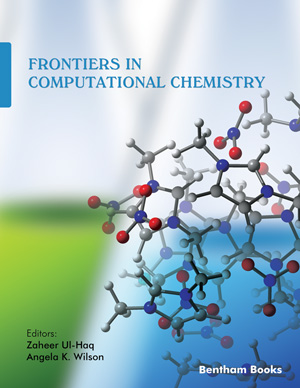Abstract
Glypican-3 (GPC3) is a developmentally-regulated oncofetal protein that has been established as a clinically-relevant biomarker for early hepatocellular carcinoma (HCC). It is one of the first transcripts to appear during malignant hepatocyte transformation, and is expressed at the protein level in approximately half of high-grade dysplastic macronodules in cirrhotic liver. Several studies show it is expressed in most (75 to 100%) of HCCs confirmed by histopathology. The protein is anchored to the hepatocyte membrane by a glycosyl-phosphatidylinositol (GPI) anchor and shows consistent membrane immunostaining pattern, making it a viable target for immunotherapeutic approaches. Targeting GPC3 for therapeutic intervention is a promising approach for the clinical management of HCC and selected other tumors that express the marker.
Keywords: Glypican-3, Hepatocellular Carcinoma, therapeutic antibody, peptide vaccine, immunohistochemistry, oncofetal protein, Wnt signaling, Carcinoma, monoclonal antibody (mAb), IMMUNOTHERAPEUTIC GPC3 VACCINE, ADCC, GC33, collagen and fibronectin, sGPC3
Anti-Cancer Agents in Medicinal Chemistry
Title: Therapeutic Potential of Targeting Glypican-3 in Hepatocellular Carcinoma
Volume: 11 Issue: 6
Author(s): Mark Allegretta and Jorge Filmus
Affiliation:
Keywords: Glypican-3, Hepatocellular Carcinoma, therapeutic antibody, peptide vaccine, immunohistochemistry, oncofetal protein, Wnt signaling, Carcinoma, monoclonal antibody (mAb), IMMUNOTHERAPEUTIC GPC3 VACCINE, ADCC, GC33, collagen and fibronectin, sGPC3
Abstract: Glypican-3 (GPC3) is a developmentally-regulated oncofetal protein that has been established as a clinically-relevant biomarker for early hepatocellular carcinoma (HCC). It is one of the first transcripts to appear during malignant hepatocyte transformation, and is expressed at the protein level in approximately half of high-grade dysplastic macronodules in cirrhotic liver. Several studies show it is expressed in most (75 to 100%) of HCCs confirmed by histopathology. The protein is anchored to the hepatocyte membrane by a glycosyl-phosphatidylinositol (GPI) anchor and shows consistent membrane immunostaining pattern, making it a viable target for immunotherapeutic approaches. Targeting GPC3 for therapeutic intervention is a promising approach for the clinical management of HCC and selected other tumors that express the marker.
Export Options
About this article
Cite this article as:
Allegretta Mark and Filmus Jorge, Therapeutic Potential of Targeting Glypican-3 in Hepatocellular Carcinoma, Anti-Cancer Agents in Medicinal Chemistry 2011; 11 (6) . https://dx.doi.org/10.2174/187152011796011109
| DOI https://dx.doi.org/10.2174/187152011796011109 |
Print ISSN 1871-5206 |
| Publisher Name Bentham Science Publisher |
Online ISSN 1875-5992 |
Call for Papers in Thematic Issues
Induction of cell death in cancer cells by modulating telomerase activity using small molecule drugs
Telomeres are distinctive but short stretches present at the corners of chromosomes and aid in stabilizing chromosomal makeup. Resynthesis of telomeres supported by the activity of reverse transcriptase ribonucleoprotein complex telomerase. There is no any telomerase activity in human somatic cells, but the stem cells and germ cells undergone telomerase ...read more
Role of natural compounds as anti anti-cancer agents
Cancer is considered the leading cause of worldwide mortality, accounting for nearly 10 million deaths in 2022. Cancer outcome can be improved through an appropriate screening and early detection and through an efficient clinical treatment. Chemotherapy remains an important approach in treatment o f several types of cancers, even though ...read more
Signaling and enzymatic modulators in cancer treatment
Cancer accounts for nearly 10 million deaths in 2022 and is considered the leading cause of worldwide mortality. Cancer outcome can be improved through an appropriate screening and early detection and through an efficient clinical treatment. Chemotherapy, radiotherapy and surgery are the most important approach for the treatment of several ...read more
 25
25
- Author Guidelines
- Graphical Abstracts
- Fabricating and Stating False Information
- Research Misconduct
- Post Publication Discussions and Corrections
- Publishing Ethics and Rectitude
- Increase Visibility of Your Article
- Archiving Policies
- Peer Review Workflow
- Order Your Article Before Print
- Promote Your Article
- Manuscript Transfer Facility
- Editorial Policies
- Allegations from Whistleblowers
Related Articles
-
Emulsomes Meet S-layer Proteins: An Emerging Targeted Drug Delivery System
Current Pharmaceutical Biotechnology Membrane Fusion Mediated Targeted Cytosolic Drug Delivery Through scFv Engineered Sendai Viral Envelopes
Current Molecular Medicine Molecular Basis of Gestational Trophoblastic Diseases
Current Molecular Medicine Prospects of Molecularly-Targeted Therapies for Cervical Cancer Treatment
Current Drug Targets Assessing Drug Transport Across the Human Placental Barrier: From In Vivo and In Vitro Measurements to the Ex Vivo Perfusion Method and In silico Techniques
Current Pharmaceutical Biotechnology The Congenital Cytomegalovirus Infection: Virus-Host Interaction for Defense and Transmission
Current Pharmaceutical Biotechnology Life and Death in the Placenta: New Peptides and Genes Regulating Human Syncytiotrophoblast and Extravillous Cytotrophoblast Lineage Formation and Renewal
Current Protein & Peptide Science miRNAs Highlights in Stem and Cancer Cells
Mini-Reviews in Medicinal Chemistry Toxicology of Tributyltin in Mammalian Animal Models
Immunology, Endocrine & Metabolic Agents in Medicinal Chemistry (Discontinued) Angiogenic and Vascular Modulation by Extracellular Matrix Cleavage Products
Current Pharmaceutical Design Damage and Recovery of the Bone Marrow Microenvironment Induced by Cancer Chemotherapy – Potential Regulatory Role of Chemokine CXCL12/Receptor CXCR4 Signalling
Current Molecular Medicine Cubilin, the Intrinsic Factor-Vitamin B12 Receptor in Development and Disease
Current Medicinal Chemistry Editorial [Hot Topic: Drugs and Pregnancy (Guest Editor: Zaneta Kimber-Trojnar)]
Current Pharmaceutical Biotechnology Prenatal Exposure of a Novel Antipsychotic Aripiprazole: Impact on Maternal, Fetal and Postnatal Body Weight Modulation in Rats
Current Drug Safety Insulin-like Growth Factor: Current Concepts and New Developments in Cancer Therapy
Recent Patents on Anti-Cancer Drug Discovery Patents on Immunotoxins and Chimeric Toxins for the Treatment of Cancer
Recent Patents on Drug Delivery & Formulation Involvement of MAPK Signalling in Human Villous Trophoblast Differentiation
Mini-Reviews in Medicinal Chemistry Anticancer Drug-Induced Immunomodulation and Cancer Therapeutics
Current Cancer Therapy Reviews Modulation of ABC Transporters by Nuclear Receptors: Physiological, Pathological and Pharmacological Aspects
Current Medicinal Chemistry Carbon Nanotubes in the Diagnosis and Treatment of Malignant Melanoma
Anti-Cancer Agents in Medicinal Chemistry


























